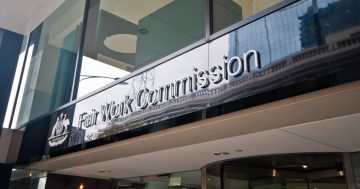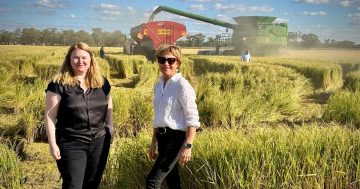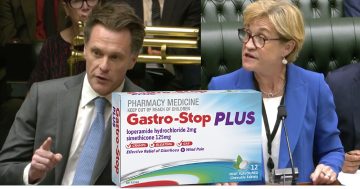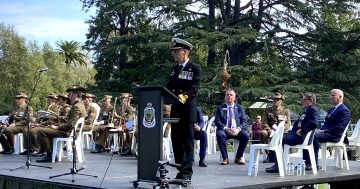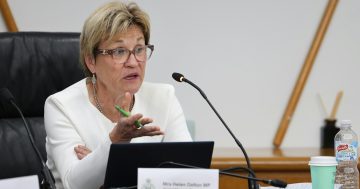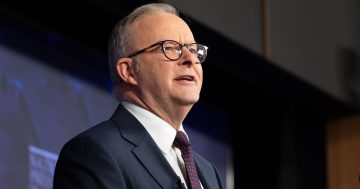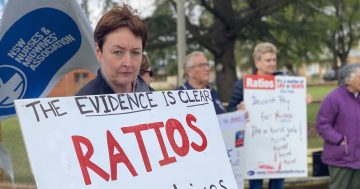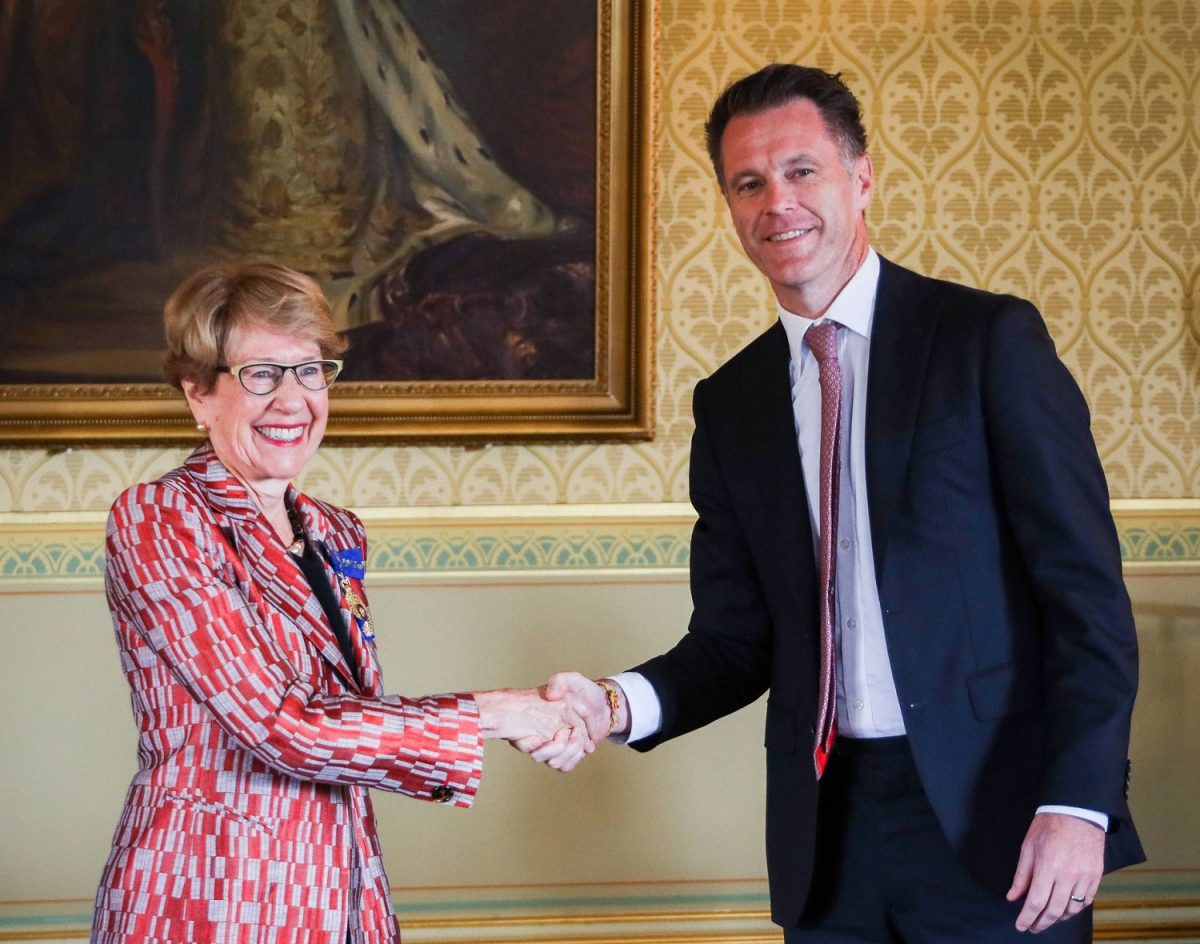
New NSW Labor Premier Chris Minns is congratulated by NSW Governor Margaret Beazley after being sworn in on Tuesday. Photo: Chris Minns.
New NSW Premier Chris Minns was sworn in at Sydney’s Government House on Tuesday (28 March), and despite lingering doubts over whether he can form a majority government as postal and pre-poll results trickle in, unions are already urging him to fulfil his pre-election promises to deliver wage increases and improve working conditions for NSW public sector workers.
But despite assurances that he wouldn’t compromise, that promise may be harder to deliver if Mr Minns is forced to deal with cross-benchers to get legislation passed.
“We have had fruitful discussions with the crossbench … consistent with the principle that we took into the election that we would not be horse-trading,” Mr Minns said after being sworn in.
“That’s consistent with my promise at the election campaign that if we were in minority and minor parties and the crossbench were prepared to support Labor, we were happy to accept their support, but we wouldn’t be doing any horse trading.”
Just a week before the election, Mr Minns guaranteed that NSW public sector workers would get a pay rise of at least 3.5 per cent if Labor won government.
“I can guarantee that as a result of the fact that we know that there’s budget savings and productivity gains with our strict economic rules in place,” he said.
The NSW Parliamentary Budget Office (PBO) conducted an independent assessment of Labor’s election promise to raise public sector wages and fund the raise through “productivity gains”.
The PBO said the plan will still cost $2.6 billion over three years.
Shortly before the election, and in the wake of the PBO analysis, then Premier Dominic Perrottet momentarily deviated from the otherwise mutually respectful campaign to call Labor “a bunch of amateurs”.
“Under Labor, there’s a giant black hole,” he said.
“Employee-related expenses are 40 per cent of the budget… Labor can’t do basic costings.”
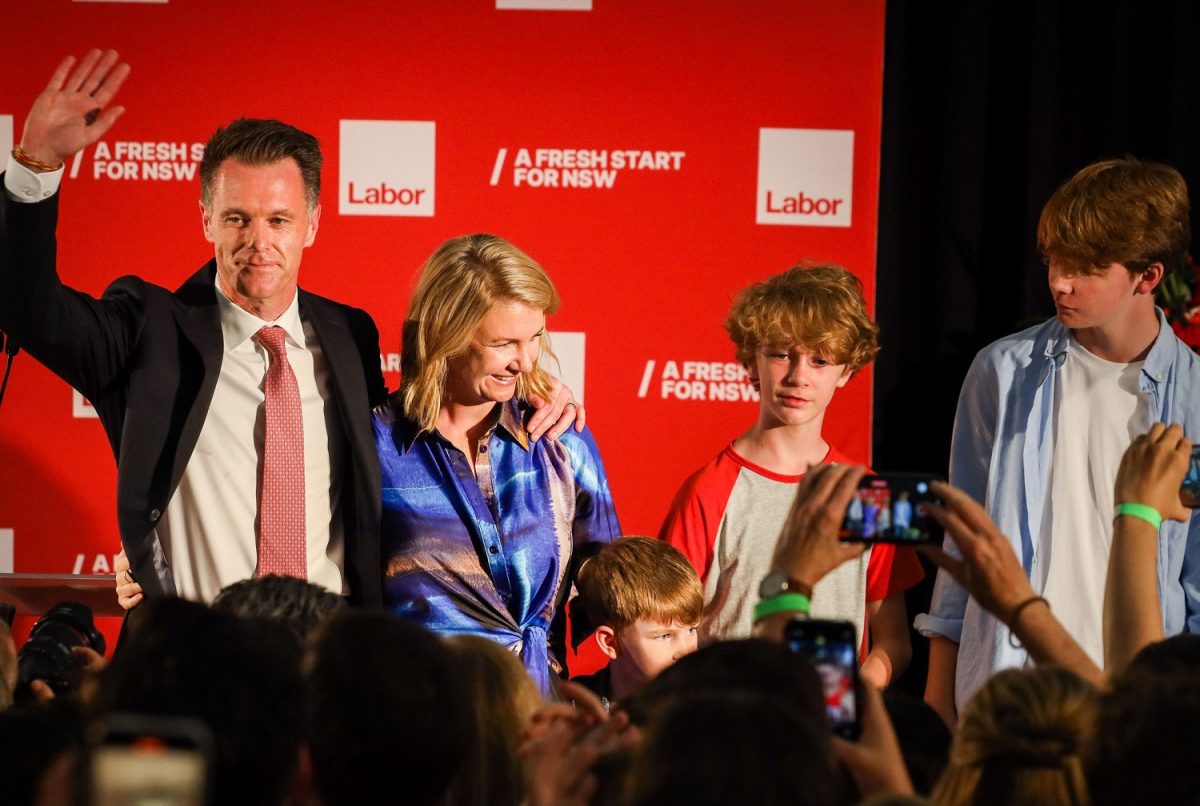
NSW Labor leader Chris Minns celebrates his election win with his family last Saturday night. Photo: Chris Minns.
The morning after the election, which ABC Analyst Antony Green called as early as 8:15 pm on Saturday night, Health Services Union (HSU) Secretary Gerard Hayes subtly challenged Mr Minns to stick to his campaign promises, saying, “Government is like a good golf swing – it’s all in the follow through!”
“This is a golden opportunity for a new government, a young government, to look at what the future can be,” he added.
“I don’t want to mark time; I want to revolutionise things.”
The calls come after several years of stagnant wage growth and worsening work conditions – particularly for the health and education sectors – through the pandemic and unexpected spikes in inflation and mortgage rates since the economy bounced back in mid-2022.
In a separate statement, Secretary of the Public Service Association (PSA) Stewart Little said he will advocate for the new government to lift wages beyond the target of 3.5 per cent Mr Minns had highlighted during the campaign.
“There’s no doubt they have a mountain to climb in terms of addressing the structural issues created over the last 12 years,” Little said.
“There are chronic worker shortages and the legacy of a lack of investment and that isn’t going to be fixed overnight.
“But there is also no question our members will be seeking a fair wage rise. It won’t be anything like current inflation, but I expect anything less than the realm of upwards of about 4 per cent would be met with concerted opposition from the trade union movement.”
Over at Unions NSW, Mark Morey said, “They’ve made a number of undertakings on delivering for our teachers, nurses and paramedics around staffing levels, and we want to see the plan on how they’re going to deliver on those. We understand it has been 12 years of having the system run down, and it will take time to get it back up, but the key is to deliver on their commitments”.
Mr Morey added that wages are only part of the problem and the new government needed to recognise that working conditions during the pandemic had exacerbated staff stress and burnout levels and had taken a toll on sector staffing levels.
NSW Teachers Federation president Angelo Gavrielatos said he would negotiate with Labor in good faith to address what he described as the “deliberate neglect” of the education system. He hoped the new government would do the same.
“The federation is ready to work with the Minns government to urgently address the unsustainable workloads and uncompetitive salaries of teachers that are responsible for the teacher shortage crisis and begin implementation of NSW Labor’s commitments of greater support and funding for public schools and TAFE,” Mr Gavrielatos said.
Original Article published by Andrew McLaughlin on Riotact.







